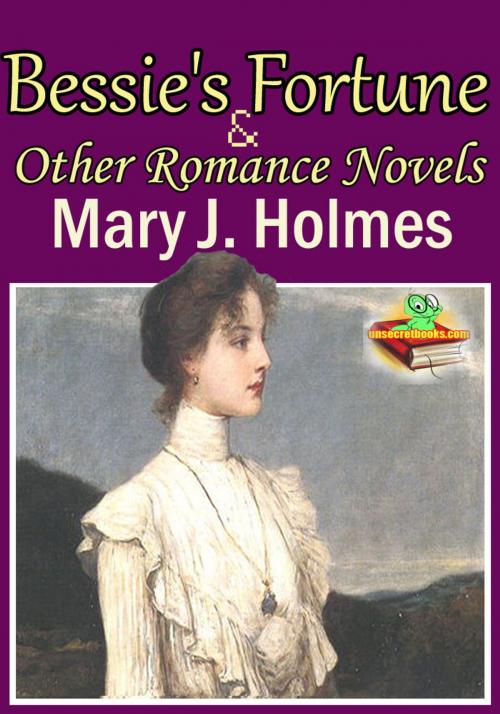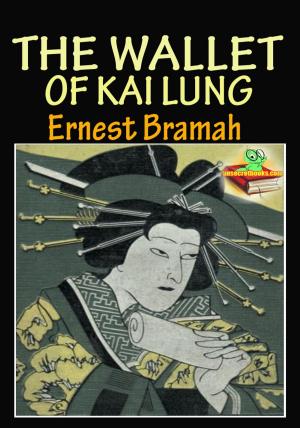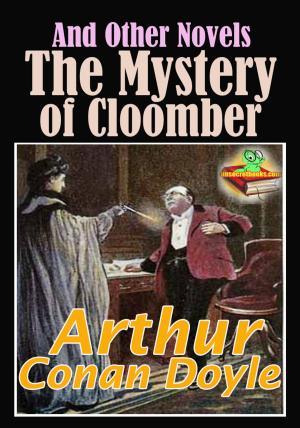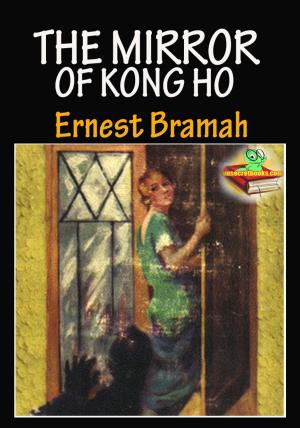Bessie's Fortune: Rosamond: Jessie Graham
(3 Timeless Romance Novels)
Fiction & Literature, Classics, Romance, Contemporary| Author: | Mary J. Holmes | ISBN: | 1230000103912 |
| Publisher: | Unsecretbooks.com | Publication: | February 1, 2013 |
| Imprint: | Language: | English |
| Author: | Mary J. Holmes |
| ISBN: | 1230000103912 |
| Publisher: | Unsecretbooks.com |
| Publication: | February 1, 2013 |
| Imprint: | |
| Language: | English |
"Mrs. Holmes is a peculiarly pleasant and fascinating writer. Her books are always entertaining, and she has the rare faculty of enlisting the sympathy and affections of her readers, and of holding their attention to her pages with deep and absorbing interest."
G.W. Dillingham Co., Publishers, NEW YORK.
Mary Jane Holmes was a bestselling and prolific American author who published 39 popular novels, as well as short stories. Her first novel sold 250,000 copies; and she had total sales of 2 million books in her lifetime, second only to Harriet Beecher Stowe.
Portraying domestic life in small town and rural settings, she examined gender relationships, as well as those of class and race. She also dealt with slavery and the American Civil War, with a strong sense of moral justice. Since the late 20th century, she has received fresh recognition and reappraisal, although her popular work was excluded from most 19th-century literary histories compiled by men.
This book is contained 3 Romance Novels.
“Bessie's Fortune”
Mrs. Geraldine Jerrold, of Boston, had in her girlhood been Miss Geraldine Grey, of Allington, one of those quiet, pretty little towns which so thickly dot the hills and valleys Of New England. Her father, who died before her marriage, had been a sea-captain, and a man of great wealth, and was looked upon as a kind of autocrat, whose opinion was a law and whose friendship was an honor. When a young lady, Miss Geraldine had chafed at the stupid town and the stupider people, as she designated the citizens of Allington, and had only been happy when the house at Grey's Park was full of guests after the manner of English houses, where hospitality is dispensed on a larger scale than is common in America. She had been abroad, and had spent some weeks in Derbyshire at the Peacock Inn, close to the park of Chatsworth, which she admired so much that on her return to Allington she never rested until the five acres of land, in the midst of which her father's house stood, were improved and fitted up as nearly as possible like the beautiful grounds across the sea. With good taste and plenty of money, she succeeded beyond her most sanguine hopes, and Grey's Park was the pride of the town, and the wonder of the entire county. A kind of show place it became, and Miss Geraldine was never happier or prouder than when strangers were going over the grounds or through the house, which was filled with rare pictures and choice statuary gathered from all parts of the world, for Captain Grey had brought something curious and costly from every port at which his vessel touched, so that the house was like a museum, or, as Miss Geraldine fancied, like the palaces and castles in Europe, which are shown to strangers in the absence of the family.
“Rosamond”
An accident had occurred to the downward train, and Rosamond was detained upon the road for a long time, so that it was already dark when she reached the Granby depot. Wishing to surprise Mr. Browning, she started for home on foot, leaving her trunks in charge of the baggage master. All around the house was still, and stepping into the hall she was about passing up the stairs, when the parlor door suddenly opened, throwing a glare of light upon her face. The same instant someone caught her round the neck, and kissing her twice, only released her when she exclaimed, "_Mr. Browning_, I am surprised at you!" …. "Mr. Browning! _Thunder!_ Just as though I was my uncle!" cried a familiar voice, and looking at the speaker, Rosamond recognized _Ben Van Vechten!_ He had come to Riverside the day previous, he said, and hearing she was expected, had waited at the depot four mortal hours, and then returned in disgust. "But how did you know me?" she asked, and he replied, "By your daguerreotype, of course. There is but one such beautiful face in the whole world." He was disposed to be complimentary, and Rosamond was not sorry when his mother appeared, for in her presence he was tolerably reserved. Mrs. Van Vechten greeted Rosamond politely, but the old hauteur was there, and her manner seemed to say, "If you are educated and refined, I can't forget that you were once my waiting-maid."
“Jessie Graham”
She was a little fat, black-eyed, black-haired girl, with waist and ankles of no Lilliputian size, and when at last Walter dared to steal a look at her, she had already divested herself of her traveling habiliments, and with the household cat in her arms, was looking about for a chair which suited her. She evidently did not fancy the high, old-fashioned ones which had belonged to Deacon Marshall's wife, for, spying the one which was never used, and into which even Ellen dared not climb, she unhesitatingly wheeled it from its place, and seated herself in its capacious depths, quite as a matter of course. A good deal shocked, and somewhat amused, Walter watched her proceedings, thinking to himself: "By and by I'll tell her that is father's chair, and then she won't want to sit in it; but she's a stranger now, so I guess I'll let her alone." By this time the cat, unaccustomed to quite so hard a squeeze as Jessie gave it, escaped from her lap, and jumping down, Jessie ran after it, exclaiming:
"Mrs. Holmes is a peculiarly pleasant and fascinating writer. Her books are always entertaining, and she has the rare faculty of enlisting the sympathy and affections of her readers, and of holding their attention to her pages with deep and absorbing interest."
G.W. Dillingham Co., Publishers, NEW YORK.
Mary Jane Holmes was a bestselling and prolific American author who published 39 popular novels, as well as short stories. Her first novel sold 250,000 copies; and she had total sales of 2 million books in her lifetime, second only to Harriet Beecher Stowe.
Portraying domestic life in small town and rural settings, she examined gender relationships, as well as those of class and race. She also dealt with slavery and the American Civil War, with a strong sense of moral justice. Since the late 20th century, she has received fresh recognition and reappraisal, although her popular work was excluded from most 19th-century literary histories compiled by men.
This book is contained 3 Romance Novels.
“Bessie's Fortune”
Mrs. Geraldine Jerrold, of Boston, had in her girlhood been Miss Geraldine Grey, of Allington, one of those quiet, pretty little towns which so thickly dot the hills and valleys Of New England. Her father, who died before her marriage, had been a sea-captain, and a man of great wealth, and was looked upon as a kind of autocrat, whose opinion was a law and whose friendship was an honor. When a young lady, Miss Geraldine had chafed at the stupid town and the stupider people, as she designated the citizens of Allington, and had only been happy when the house at Grey's Park was full of guests after the manner of English houses, where hospitality is dispensed on a larger scale than is common in America. She had been abroad, and had spent some weeks in Derbyshire at the Peacock Inn, close to the park of Chatsworth, which she admired so much that on her return to Allington she never rested until the five acres of land, in the midst of which her father's house stood, were improved and fitted up as nearly as possible like the beautiful grounds across the sea. With good taste and plenty of money, she succeeded beyond her most sanguine hopes, and Grey's Park was the pride of the town, and the wonder of the entire county. A kind of show place it became, and Miss Geraldine was never happier or prouder than when strangers were going over the grounds or through the house, which was filled with rare pictures and choice statuary gathered from all parts of the world, for Captain Grey had brought something curious and costly from every port at which his vessel touched, so that the house was like a museum, or, as Miss Geraldine fancied, like the palaces and castles in Europe, which are shown to strangers in the absence of the family.
“Rosamond”
An accident had occurred to the downward train, and Rosamond was detained upon the road for a long time, so that it was already dark when she reached the Granby depot. Wishing to surprise Mr. Browning, she started for home on foot, leaving her trunks in charge of the baggage master. All around the house was still, and stepping into the hall she was about passing up the stairs, when the parlor door suddenly opened, throwing a glare of light upon her face. The same instant someone caught her round the neck, and kissing her twice, only released her when she exclaimed, "_Mr. Browning_, I am surprised at you!" …. "Mr. Browning! _Thunder!_ Just as though I was my uncle!" cried a familiar voice, and looking at the speaker, Rosamond recognized _Ben Van Vechten!_ He had come to Riverside the day previous, he said, and hearing she was expected, had waited at the depot four mortal hours, and then returned in disgust. "But how did you know me?" she asked, and he replied, "By your daguerreotype, of course. There is but one such beautiful face in the whole world." He was disposed to be complimentary, and Rosamond was not sorry when his mother appeared, for in her presence he was tolerably reserved. Mrs. Van Vechten greeted Rosamond politely, but the old hauteur was there, and her manner seemed to say, "If you are educated and refined, I can't forget that you were once my waiting-maid."
“Jessie Graham”
She was a little fat, black-eyed, black-haired girl, with waist and ankles of no Lilliputian size, and when at last Walter dared to steal a look at her, she had already divested herself of her traveling habiliments, and with the household cat in her arms, was looking about for a chair which suited her. She evidently did not fancy the high, old-fashioned ones which had belonged to Deacon Marshall's wife, for, spying the one which was never used, and into which even Ellen dared not climb, she unhesitatingly wheeled it from its place, and seated herself in its capacious depths, quite as a matter of course. A good deal shocked, and somewhat amused, Walter watched her proceedings, thinking to himself: "By and by I'll tell her that is father's chair, and then she won't want to sit in it; but she's a stranger now, so I guess I'll let her alone." By this time the cat, unaccustomed to quite so hard a squeeze as Jessie gave it, escaped from her lap, and jumping down, Jessie ran after it, exclaiming:















